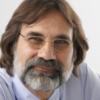
The World Academy of Art and Science (WAAS) is inviting you to attend the first webinar in a series on Science for Human Security.
Hydrogen is the lightest chemical element, being a gas of diatomic molecules at the standard conditions. It is the most abundant element in the Universe. On the Earth, it exists in the molecular forms such as water and organic compounds. Hydrogen is used in many essential chemical processes. Besides, it can be burned to produce heat or combined with oxygen in fuel cells for local electricity generation or in transportation vehicles. There is a series of industrial processes for hydrogen production, including steam reforming of natural gas, biomass gasification, and water electrolysis. It can also be produced by biological reactions, e.g., fermentation, in which carbohydrates are converted to hydrogen by anaerobic bacteria.
The event will include the following talks:
- Nebojša Nakićenović, Emeritus Research Scholar, International Institute for Applied Systems Analysis; Former Tenured Professor of Energy Economics, Vienna University of Technology, Austria; Vice Chair, Group of Chief Scientific Advisors, European Commission: Future energy (sources) transformation.
- Marcel Van de Voorde, Delft University of Technology, The Netherlands: Towards a hydrogen economy.
- Elena V. Pikuta, Astrobiology Laboratory, National Space Science and Technology Center, National Aeronautics and Space Administration, Huntsville, AL, USA: Bacterial hydrogen production.
- Richard B. Hoover, US Space & Rocket Center, Huntsville, AL, USA: Potential applications of Spirochaeta americana for hydrogen production.
The last talk will be devoted to a discovery of R. B. Hoover and E. V. Pikuta of a nonpathogenic bacterium, which can produce hydrogen for potential energy use. The talks will be followed by a discussion among the speakers and with the audience.
The event will be moderated by Nebojša Nešković, Vice President, World Academy of Art and Science.
Upcoming Events
Potsdam Institute for Climate Impact Research (PIK) & Online
